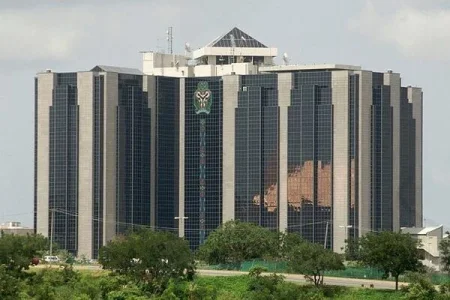
The Central Bank of Nigeria (CBN) has enacted a ban on the utilization of foreign currency as collateral for naira-denominated loans. This directive, articulated in a circular dated April 8, 2024, and disseminated to all banks, aims to address prevailing economic challenges and reshape the financial landscape.
The circular, issued by CBN's Acting Director of Banking Supervision Department, Adetona Adedeji, delineates two exceptions to the newly imposed rule: Eurobonds issued by the Federal Government of Nigeria and guarantees of foreign banks, including Standby Letters of Credit.
"The Central Bank of Nigeria has observed the prevailing situation where bank customers use Foreign Currency (FCY) as collaterals for Naira loans," the circular states. Consequently, the practice of employing foreign currency-denominated collaterals for naira loans is hereby prohibited, except in cases explicitly mentioned above.
Furthermore, the CBN underscores the imperative for banks to unwind existing loans secured with dollar-denominated collaterals within a 90-day timeframe. Failure to comply with this directive will result in risk-weighting of such exposures at 150% for Capital Adequacy Ratio computation, alongside additional regulatory sanctions.
Simultaneously, the CBN announced the sale of dollars to over 1,500 Bureau De Change (BDC) operators to cater to retail market demand for eligible transactions. Each BDC will receive $10,000 at the rate of N1,101/$1. This measure aligns with CBN's broader efforts to sustain the naira's recent gains against the dollar, reflecting an appreciation of over 40% in recent weeks.
The decision to halt the use of foreign currency as collateral for naira loans signifies a strategic shift in monetary policy aimed at enhancing currency stability and mitigating risks associated with currency fluctuations. However, the implications of this directive extend beyond immediate regulatory compliance, impacting borrowing practices, financial sector dynamics, and overall economic stability.
Industry stakeholders, economists, and analysts are closely monitoring the unfolding developments, assessing the potential ramifications on lending activities, business operations, and investor sentiment. Amidst these changes, the CBN's proactive measures seek to foster a conducive economic environment conducive to sustainable growth and financial resilience.




